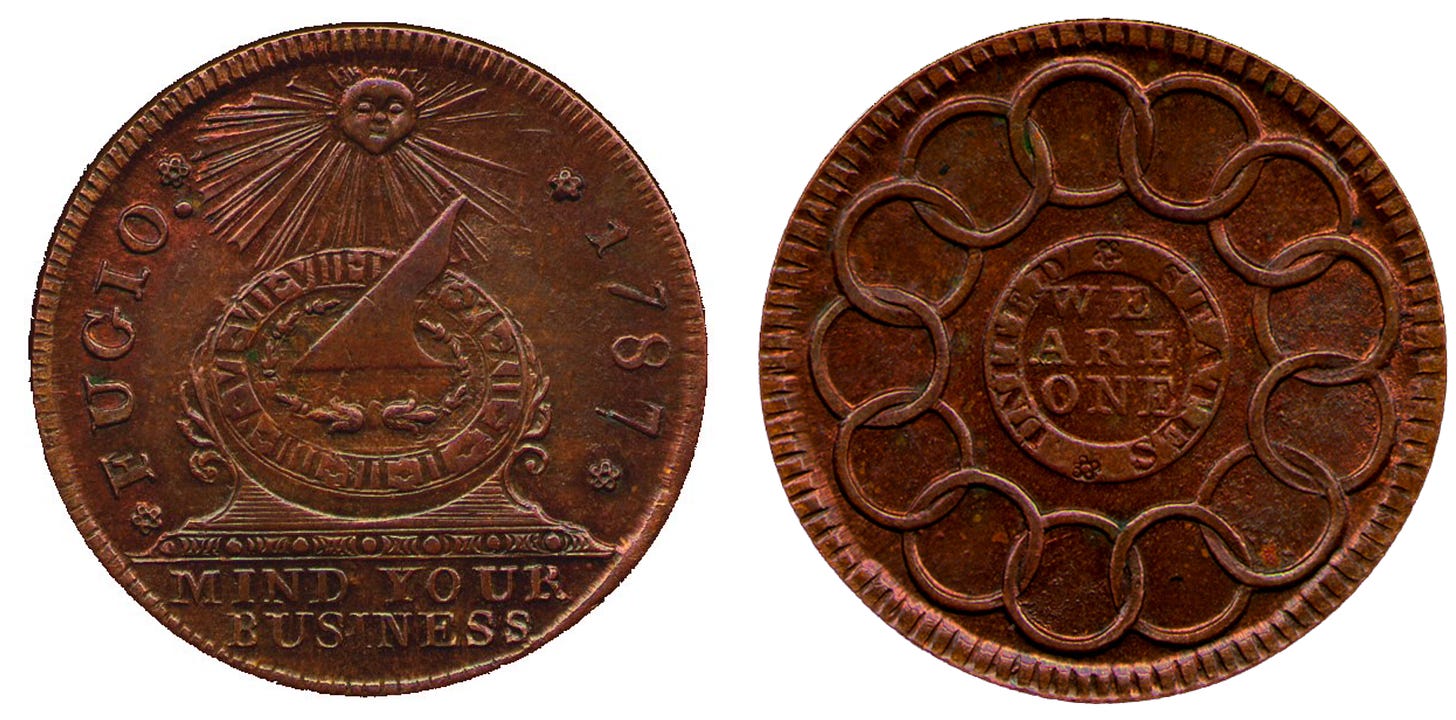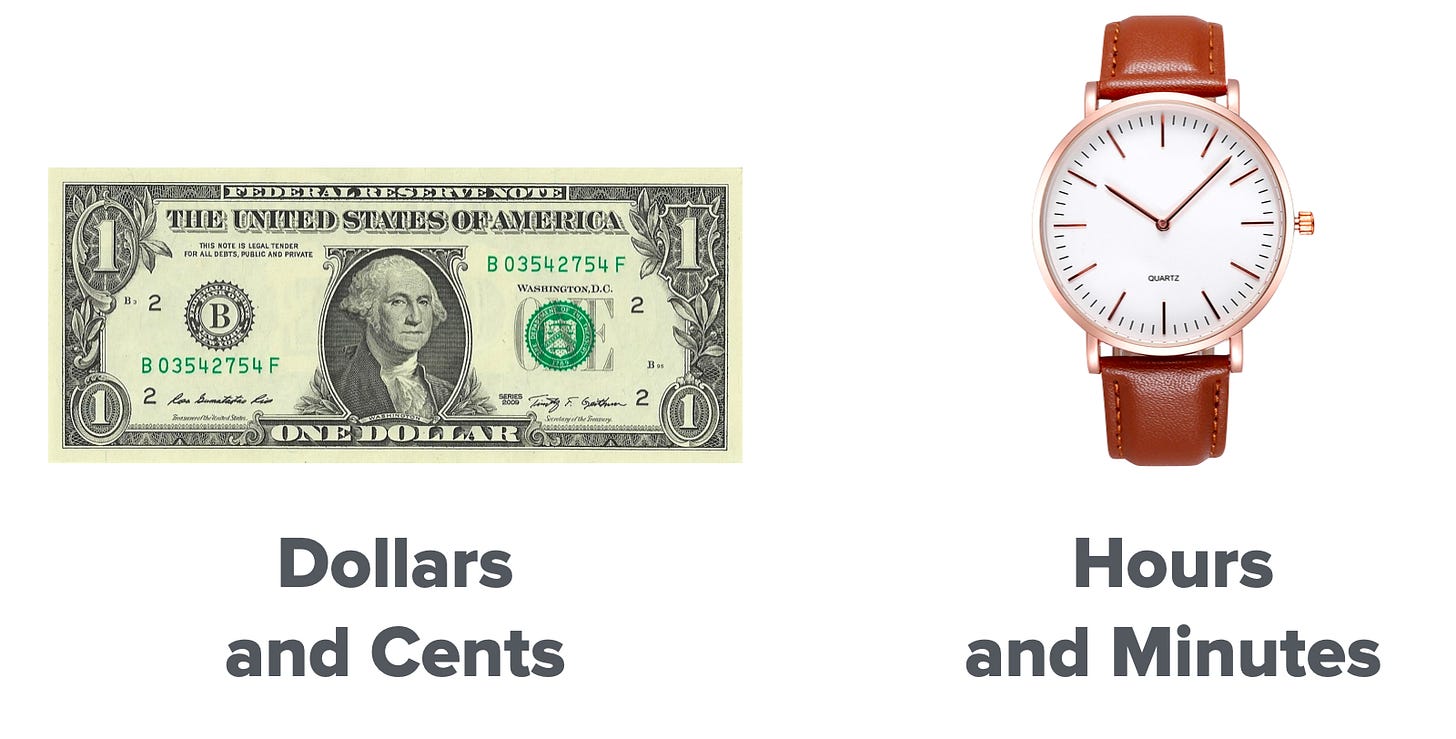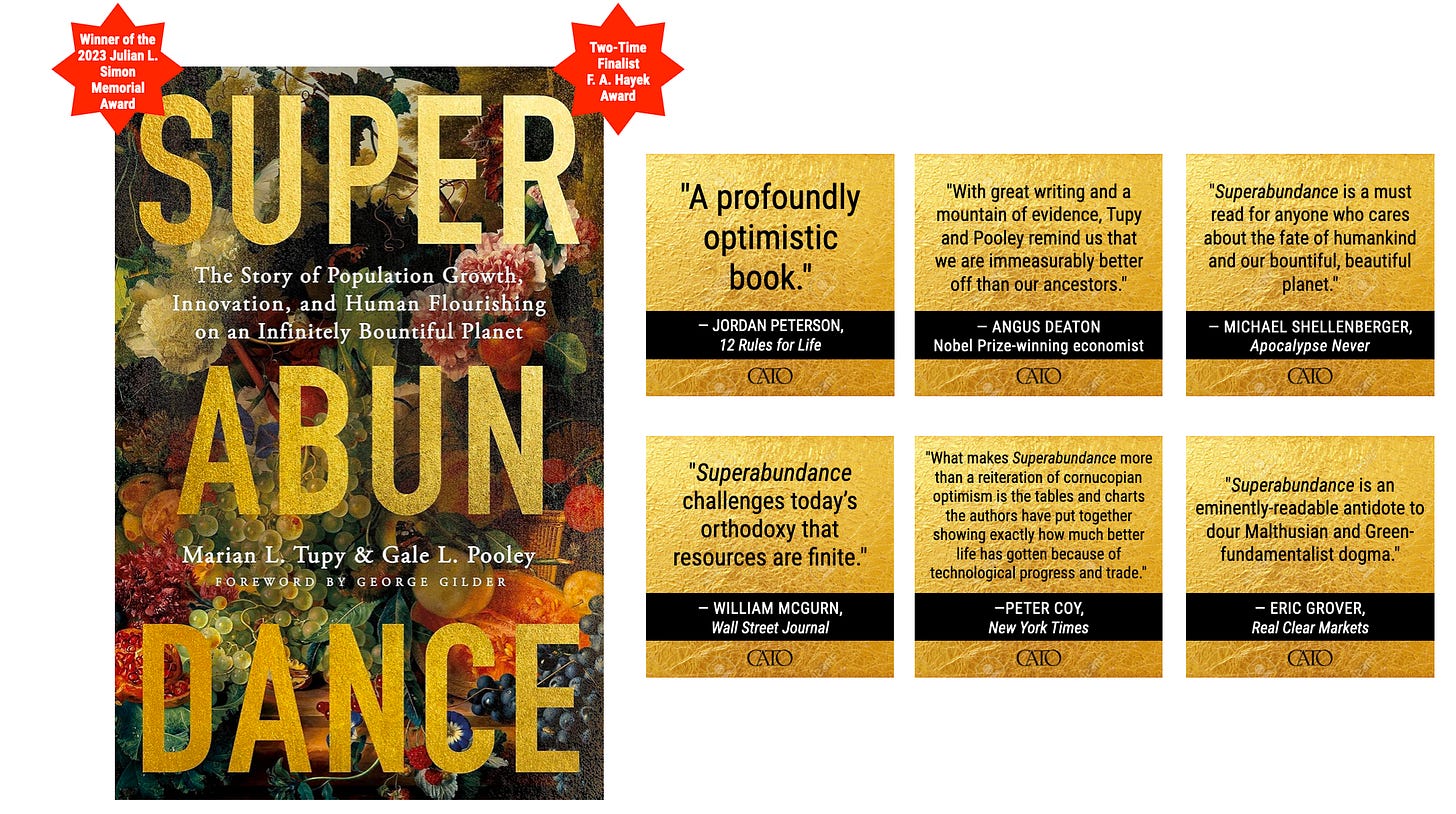On April 21, 1787, the Congress of the Confederation of the United States authorized a design for an official copper penny, later referred to as the Fugio cent because of its image of the Sun and its light shining down on a sundial with the caption, Fugio. Fugio is Latin for “I flee/fly”, referring to time flying by.
By some accounts, this coin was designed by Benjamin Franklin; as a reminder to its holders, he put at its bottom the message, “Mind your business.” Note on the backside are 13 connected rings with the statement “We Are One.”
While the aphorism “Time is money” is claimed to have originated with Franklin, it is much more accurate to say that money is time. We buy things with money, but we really pay for them with our time. A time price is simply the money price divided by hourly income. Money prices are expressed in dollars and cents while time prices are expressed in hours and minutes.
For example, according to measuringworth.com workers in 1787 earned around two of these coins (2 cents) per hour and corn was around 67 cents a bushel. It would take them 33.5 hours of work to earn the money to buy one bushel. Today corn is $4.00 a bushel. Unskilled workers are earning around $16.51 an hour and blue collar workers are earning around $36 an hour in wages and benefits. For the time it took to earn one bushel of corn in 1787, unskilled workers now get 134 bushels and blue-collar workers get 300. Also note that U.S. population has increased by a factor of 84 from 4 million to over 337 million. Corn abundance is growing 1.60 to 3.57 times faster than population. More people with the freedom to innovate create cornucopias.
Can we say that our Founders understood that money is time? We would like to think so.
We describe the process of transforming scarcities into abundances in our new book, Superabundance, available at Amazon. You can read more about the book at superabundance.com. There has never been a better time to create more life.
Gale Pooley is a Senior Fellow at the Discovery Institute and a board member at Human Progress.







I always think of money as work. Something symbolic that allows individuals to do things besides providing for basic needs.
Read these three books:
Life After Capitalism
Life After Google
Knowledge and Power
Then you will be able to conduct a great interview 🤙🏼